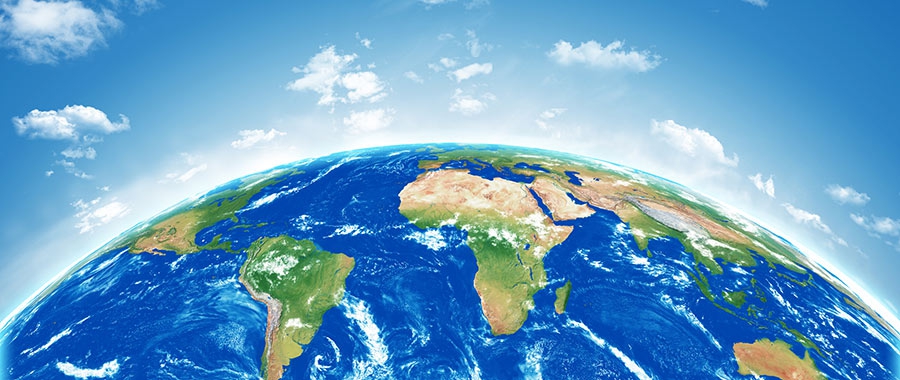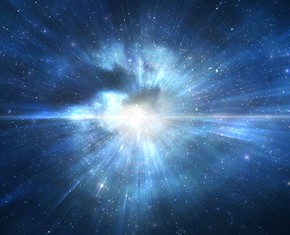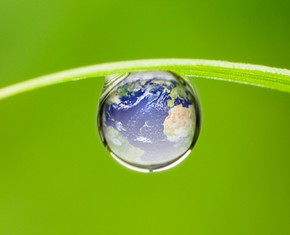The views expressed in our content reflect individual perspectives and do not represent the authoritative views of the Baha'i Faith.
Saving the Earth’s natural environment from the impact of billions of humans will require something we’ve never tried before: unity.
From a Baha’i perspective, the unity of humanity means not only the oneness of the world’s nations and peoples, but it also includes the application of both scientific and spiritual principles to our environmental problems. Unity can only happen at the interface of both science and spirituality, which includes the recognition of practices formerly considered as solely spiritual, such as collaboration, accountability, justice, responsibility, moderation, and much more. Advances in human endeavor increasingly call for a new degree and application of these interfaces between science and religion. Speaking about the relationship between religion and science, Abdu’l-Baha said:
There is no contradiction between true religion and science. When a religion is opposed to science it becomes mere superstition: that which is contrary to knowledge is ignorance.
How can a man believe to be a fact that which science has proved to be impossible? If he believes in spite of his reason, it is rather ignorant superstition than faith. The true principles of all religions are in conformity with the teachings of science. – Paris Talks, p. 141.
As we develop ever greater understandings of the formerly-overlooked polar areas of our planet, we encounter ever greater forms of interdependent diversity. In fact, we are being called to recognize that the very essence of creation is diversity; hence that old truism that there are no two grains of sand that are identical.
Our world has changed so much, so quickly! In our earlier history as a species, our ventures remained largely centered within the individual, the family and the tribe, and were largely confined to the planet’s surface. Individualism was followed by progressively greater degrees of unity as we learned how to optimize individual capacity and harmonize it with the capacity of others.
We now know that the future holds exciting new fields for development. As we understand more about the complementary nature of science and religion, new modes of human existence will be created. The unimaginable resources that exist within our great human family will become progressively realized, and the way ahead more clear. Then humanity will be able to look to the future with increasing optimism.
Our choice at this present moment is simple; united we stand, divided we fall. The Earth’s environment cannot be sustained without an increasing level of agreement and unity among individuals and nations, as demonstrated by the 2015 Paris Climate Accords—the first universal treaty, signed by virtually all the nations on Earth.
But this is not a choice that rightfully belongs to others; to be relegated to the hands of politicians, statesmen, scientists or other appointed decision-makers. Maintaining the vital unity between the branches of human endeavor is the purpose of true religion. Abdu’l-Baha explained:
The Unity of God is logical, and this idea is not antagonistic to the conclusions arrived at by scientific study.
All religions teach that we must do good, that we must be generous, sincere, truthful, law-abiding, and faithful; all this is reasonable, and logically the only way in which humanity can progress.
All religious laws conform to reason, and are suited to the people for whom they are framed, and for the age in which they are to be obeyed. – Ibid., pp. 141-142.
One of the great challenges of humanity is how to harmonize the great explosion of diversity in every field of human life; in the sciences and the arts, in social and cultural development. This principle acknowledges that you are the only one of you that the universe has, just as I am the only one of me in existence. When we each bring our individual talents and capacities together for the collective well-being of humanity, through a mature practice of consultation based on mutual respect, the resources of our planet will be revolutionized.
Unity is an ideal that serves to protect, enhance and sustain the life of every individual, within the broader context of the well-being of the community. It allows us to approach previously insoluble problems with the creative thought processes of many, giving full range to the lateral thinkers amongst us, and yet harmonizing these views with others that may be more culturally or academically-based.
We tend to think of religion and science as completely separate spheres of human activity, or even as opposing disciplines. The Baha’i teachings, though, see them as harmonious, as the two pillars that support and sustain our existence on this beautiful planet.
















Comments
Sign in or create an account
Continue with Googleor